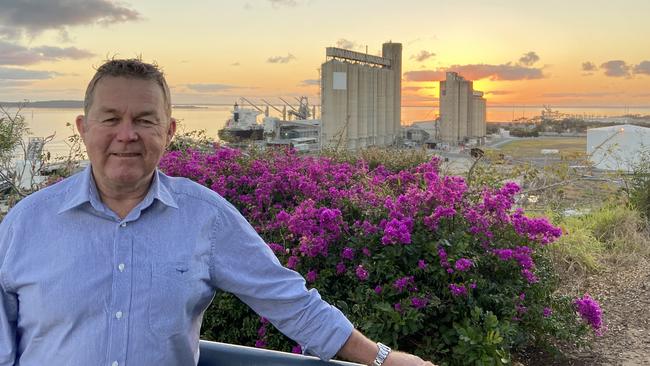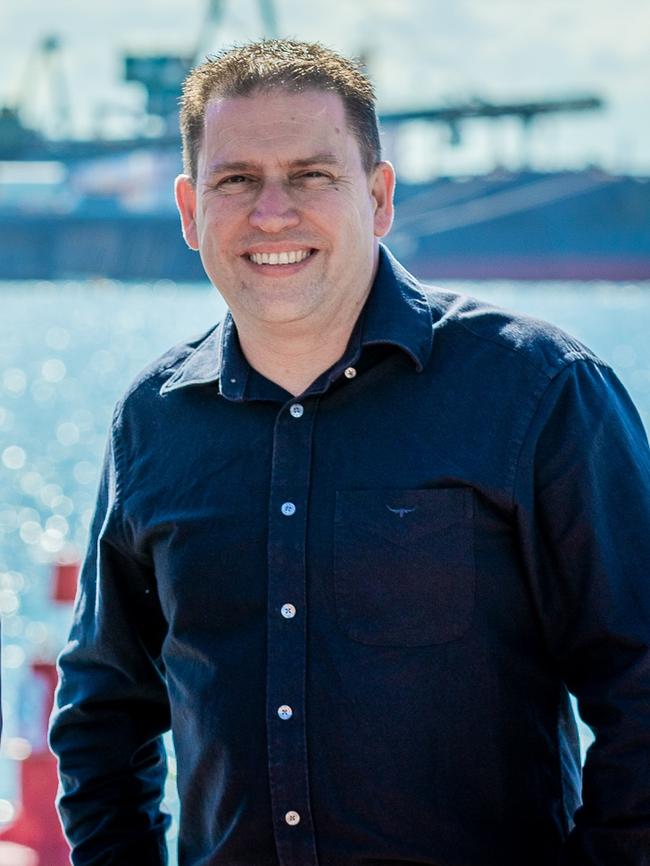Coalition candidate in resources seat rejects net-zero emissions target
The Liberal National Party candidate in the battleground rural Queensland electorate of Flynn has rejected the Coalition’s renewed push for a net-zero emissions target.

The Liberal National Party candidate in the battleground rural Queensland electorate of Flynn has rejected the Coalition’s renewed push for a net-zero emissions target.
State MP Colin Boyce says the policy would entrench Australia into a “lower standard of living” and it would be people living in regional areas such as his who would bear the brunt.
His comments reflected the sentiment of a group of holdouts within the Coalition, particularly in regional Queensland, who are against a 2050 net-zero emissions target.
Flynn is held with a margin of 8.6 per cent by the LNP’s Ken O’Dowd, who will retire at the next election, when Mr Boyce will go up against ALP challenger Matt Burnett, the mayor of Gladstone, who has come out in support of the net-zero target.
Mr Boyce, who has represented the Callide electorate in the Queensland parliament since 2017 and was preselected for Flynn in July, told The Australian he backed “coal-fired power” to ensure the future of central Queensland’s heavy industry sector.
“The reality of the economics is that under a net-zero policy our nation would have a lower standard of living, because business activity would drop, pay packets would disappear and it’s the people living in regional areas who would bear the brunt,” Mr Boyce said.
Senior Labor sources said Flynn was a key target in the upcoming federal election and that the current margin, blown out by the backlash against former Labor leader Bill Shorten’s perceived ambivalence toward coal before the 2019 election, was not reflective of the historically closely contested seat.
The central Queensland electorate is dominated by emissions-heavy mining and agriculture, with Census data listing coalmining (7.2 per cent) and beef cattle farming (5.2 per cent) as the two biggest employers.
Mr Boyce, a cattle farmer, said a net-zero emissions policy would put an end to the coal-fired power station that is needed to power Gladstone’s gas plants and alumina refineries.
“In Gladstone, the Boyne Island aluminium smelter employs close to one thousand people and depends on affordable base load coal-fired power to continue operating,” Mr Boyce said.
“If we walk away from affordable coal-fired power, we are walking away from those jobs – and many, many more.”

Mr Boyce, who last week travelled through the electorate with Nationals senator Matt Canavan – a staunch opponent of a net-zero emissions target – said his would-be constituents were wary of the impact of a net-zero target on regional areas.
“They understand the importance of affordable power and the value of our coal industry,” Mr Boyce said.
“All you have to do to see evidence of global demand for our coal is count the ships coming in and out of Gladstone Harbour.
“More than 70 million tonnes of coal were exported from Gladstone last year, creating wealth locally, regionally and nationally.”
Mr Boyce also criticised the practice of wealthy nations relocating their production offshore to reduce emissions at home, with no effect on global emissions.
His opponent, Mr Burnett, said he supported the net-zero target and did not believe it would destroy the region’s industries, which could exist alongside renewable energy sources.
“I don’t think it’s anything to be scared of,” Mr Burnett said.
“I think there are opportunities with it.”
A former journalist who served on the council for 20 years, Mr Burnett said net-zero targets did not mean there could be no emissions and that some emissions-heavy industries could be offset by other industries reducing their emissions.
“There’s a lot of scaremongering about what (net zero) could mean,” he said.
“Net zero emissions does not mean zero emissions. I don’t think it necessarily means our three coal-fired power stations are closed down. I certainly don’t think that’s the end of our coal mines. Queensland is going to need more energy, not less.”




To join the conversation, please log in. Don't have an account? Register
Join the conversation, you are commenting as Logout